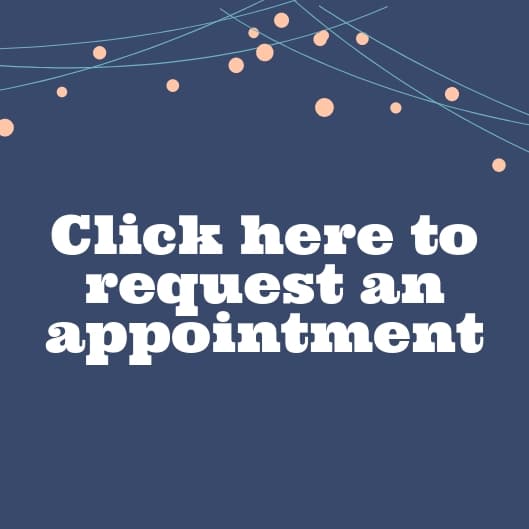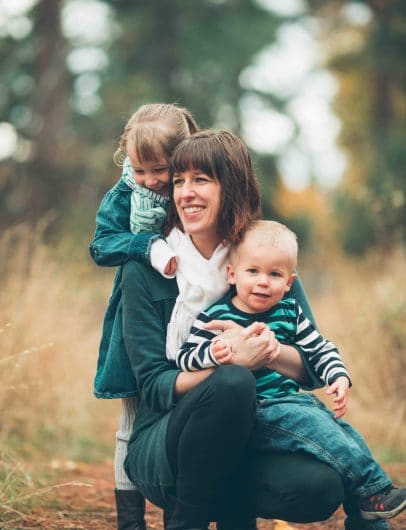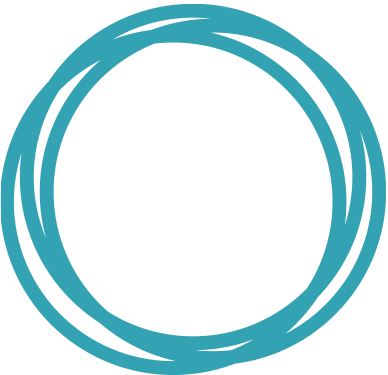Is naturopathic medicine science-based?
- 4 ways your child may not tolerate cow’s dairy: allergy, milk protein sensitivity, cerebral folate deficiency, and lactose intolerance - January 3, 2024
- 5-hydroxytryptophan (5-HTP) and the “feel good” neurotransmitter serotonin - October 4, 2023
- Quercetin supplementation for children: research, safety and efficacy - May 13, 2023

I had a great question about naturopathic medicine and science:
You say that your medicine is evidence-based. Would you define “evidence” in the same way that the traditional medical model would (peer-reviewed journals, RCTs, meta-analyses, etc.)? Are all of your treatments supported by research?
Thanks Anonymous! I’ll do my best to answer your question…
Though there are many types of scientific research, I generally split research into two main categories: 1) single agent trials, and 2) research based on clinical practice (e.g., case studies, retrospective studies, etc.).
The gold standard of scientific research is double-blind placebo-controlled trials. This is the final stage of research that pharmaceutical companies go through before they can legally sell their product to consumers. Double-blind trials (for the lay reader) means that each patient enrolled in the study gets either a sugar pill (placebo), or the active pill, and neither the patient nor the person who gives the patient the pills knows which one is active or placebo. Only the person analyzing the data knows who received which pill. Double-blind placebo-controlled trials are important because they take the “placebo effect” and observer bias out of the equation, so theoretically only the biochemical effects of the pill are recorded.
Do natural medicines undergo the same research as pharmaceuticals? The answer is yes and no. Natural medicines do undergo double-blind placebo-controlled trials, but the number of people enrolled in these trials are generally much less than pharmaceutical trials. This is mainly due to the difference in funds (pharmaceutical companies fund their research with their multibillion dollar sales). As my research methods professor once told me, the easiest way to show no difference between two groups is to enroll too few patients in a trial. There are thousands of herbs, foods and nutrients potentially used by naturopathic physicians – some of these have undergone rigorous double-blinded studies (like St. John’s wort), others have not (like Yarrow).
So why do we use natural medicines that do not necessarily have research supporting them? This is a tricky subject. In naturopathic medical school we learn the biochemical and physiologic mechanisms of herbs, drugs, nutrients and foods. Most of the time the research supports our use of these natural medicines, but sometimes it does not. Why? Because there are many problems with single-agent trials and natural medicines:
- As stated above, there is a huge discrepancy in funds for research, which means we cannot study all natural medicines, and many medicines studied have poor enrollment. This leads to false negative effects of these agents.
- Many of the agents studied are used improperly, or in dosages comically low. What would the allopathic community say if we studied the effects of aspirin on pain at a level of 0.1 mg? Similarly many studies of natural medicines (herbs in particular) use doses at a fraction of the therapeutic level. Similarly, many studies used improper forms of the herbs (e.g., Echinacea purpurea instead of Echinacea angustifolia), or attempted to study herbs or nutrients for conditions in which they were never intended to treat (like vitamin C for tumor reduction).
- We rarely use single agents! Often our treatment plans are multi-factorial, and rightly so. A common treatment for a patient may include dietary changes, prescription for exercise, counseling, and multiple herbs or vitamins. Many of these interventions have shown to have a synergistic effect, but this is nearly impossible to study in a double-blinded trial.
I don’t want to give the impression that naturopaths dismiss all scientific research. When research trials are well designed and show positive or negative results, all good naturopaths use that knowledge to influence their clinical practice. Research is extremely helpful at elucidating which natural medicines are most helpful for certain conditions, and at mapping out the biochemical reactions.
Whew…this turned out to be a much longer post than I intended. I would like to talk a bit about how we use research based on actual practice to make many of our clinical decisions, but I think I will save that for my next post.








Anonymous
March 21, 2011 at 6:14 amWell a lot of medical trials are also flawed… I find it riduculous that the hypothosis is almost always proven… and there is a lot of corruption in the pharmacutical industry, especially wrt vacines.
many of the drugs are worse than what they are trying to cure…
Plus pharmacuticals only treat/mask sysmtoms, and there are more and more avalialbe for an y side efects.
Unfortunatly wesrent medicine does little to find the root of the problem. Case in point is diabeties…there it evidence that it is highly treatable and may even be reversable through diet and exercize… Problem is the cure is different from what the medical industry does.
i trust natropathy because it is better to treat the cause of the problem than the symptoms… I would much rather treat a vitamin/mineral defficiency than take an ever increasing doses.
Bagus
November 14, 2012 at 2:54 amSituation 1:You have a terminal ilsnels.I have created and hold a pill which will cure your ilsnels. How much would you be willing to pay me for it?The correct answer is likely close to the total of all your liquidated assets plus everything you could possibly borrow, minus a reserve to maintain a minimally bearable quality of life.Situation 2:You have a terminal ilsnels. You are given the cure pill as a right. You take it and swallow it.Now I ask you how much you are willing to reimburse me for producing your lifesaving pill.Your answer is that you had a “right” to the pill and you are willing to pay almost NOTHING. Even the most appreciative and generous of survivors would pay FAR LESS than the pill was actually worth to them. They wouldn’t liquidate ANY valuable assets.Situation 1 is capitalist. It represents economic reality and provides the maximum incentive to INVENT the cure pill in the first place. It ensures that risk and resource costs are adequately compensated.Situation 2 is socialist and represents the warped leftist view of reality and provides no incentive to invent the cure pill. Risk taking is punished and therefore is never undertaken. Resources costs are not covered, so the producer runs an economic deficit. It cannot continue this in the long run.In Situation 2, the pill never exists and you DIE. If the pharmaceutical company makes the mistake of producing the pill for one disease, they will never make the mistake again for another disease.Socialism = Death, but the deaths attributable to socialism are largely uncountable. You suffer and die from the goods and services NOT provided.The “right” to affordable goods doesn’t benefit you when the shelves are empty.
WLUwikipedia
January 27, 2012 at 10:11 am“As stated above, there is a huge discrepancy in funds for research, which means we cannot study all natural medicines, and many medicines studied have poor enrollment. This leads to false negative effects of these agents.“
So because there isn’t enough funding for proper clincal trials, that justifies giving unproven substances to treat diseases? So the basic principle is, if you don’t have the resources to do something properly, just do a bad job? How do you know if they are “false negatives” or “true negatives”? How do you distinguish between a “false negative” and something that simply doesn’t work? Would you still prescribe an herb because you think a trial produced a “false negative”? Would you think it OK if a drug was approved, despite negative results, because the researchers involved thought it was a “false negative”? This seems like quite the double-standard.
“Many of the agents studied are used improperly, or in dosages comically low. What would the allopathic community say if we studied the effects of aspirin on pain at a level of 0.1 mg? Similarly many studies of natural medicines (herbs in particular) use doses at a fraction of the therapeutic level. Similarly, many studies used improper forms of the herbs (e.g., Echinacea purpurea instead of Echinacea angustifolia), or attempted to study herbs or nutrients for conditions in which they were never intended to treat (like vitamin C for tumor reduction).“
This again seems like special pleading – we don’t have any good evidence to support this treatment, but we’re going to recommend it anyway. If a result for Echinacea purpurea is negative and you think it’s because Echinacea angustifolia should have been used – that seems like a reason to test Echinacea angustifolia rather than prescribe it in a regular practice. Again comparing it to drugs – if one drug failed to work, would you be OK with prescribing the isomer because “they tested the wrong isomer”? If someone had a new chemotherapy drug that wasn’t proven to work (like vitamin C hasn’t been proven to work for reducing tumors) would you be OK to use it in your patients?
“We rarely use single agents! Often our treatment plans are multi-factorial, and rightly so. A common treatment for a patient may include dietary changes, prescription for exercise, counseling, and multiple herbs or vitamins. Many of these interventions have shown to have a synergistic effect, but this is nearly impossible to study in a double-blinded trial.“
Don’t real doctors prescribe dietary changes, exersise and counseling? This seems like misrepresentation, not to mention bait-and-switch. You prescribe diet and exercise and counseling (like doctors) but how does that justify the use of unproven herbs and vitamins? Real medicine requires an intervention be proven to work before it is used, aren’t you just asking to have a different, more lax set of standards? Again, how would you feel if a doctor prescribed diet, exercise and counseling along with an untested drug that hasn’t been shown to work? Would that be OK? If not, why are untested herbs OK?
So far naturopathy just seems like its co-opting parts of medicine, and using those co-opted, proven interventions that doctors already recommend, to justify the use of unproven, untested substances or interventions. Replace “herb” or “vitamin” with “drug” in your above post and see how much you still agree with the statement. If you find you can’t agree with it after that, ask yourself why you’ve set up a double standard.
Laudinei
November 14, 2012 at 2:45 pmThe popular Pill Book Guide suapmelentpl sibling is compiled by one of America’s leading authorities on natural medicine, Dr. Michael Murray. The 1074 page book is an up-to-date guide on the effectiveness and safety of herbs, vitamins and other natural products. The book is easily laid out in clear language with information of what each product is for, how it works, with safety and effectiveness ratings, side effects, drug and food interactions, dosages, cautions and warnings.The purpose of this book is to help the reader who use nautral products make wise choices on natural supplements and to save one’s health. It also includes Dr. Murray’s recommendations for the prevention and treatment of common conditions from acne and congestive heart failure to diabetes and stress. The book answers some questions, on the subject what is all hype and what is science? What do we really know about natural remedies?It answers questions like, can symptoms of menopause be relieved without hormone replacement therapy? Black Cohosh (Remifemin) performed better than hormones and had an A (excellent) rating for safety. What is a safer way of halting macular degeneration over Lasik sugery and save ones’ night vision? Bilberry has proven in historical cases to stop the formation of cataracts and improves night vision. During World War II the British Royal Air Force gave it to their pilots who had to fly night missions! To get relief from insomnia without dangerous prescription drugs take your pick from Valerian (rated A for effectiveness), Melatonin (rated B+) or 5-HTP (rated B+). One concern, there were some herbs that were omitted from the book I’d like to have seen listed, e.g. Raspberry Leaves. But if you would consider research and natural remedies change on the market from time-to-time. I’m sure in the future that more will be added. Other than that I definitely believe this to be the best natural reference book out on the market at this time.